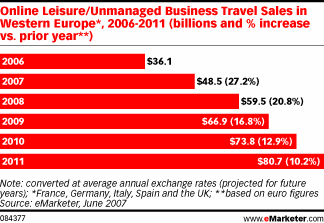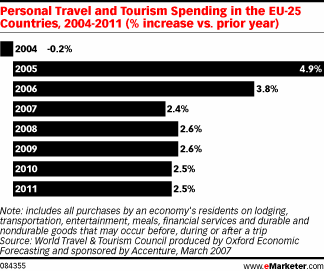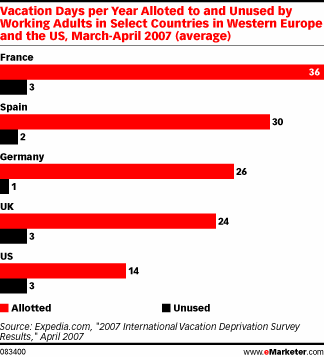"Over the next four years, as the European online travel market matures, sales growth in the sector will steadily decrease," says Jeffrey Grau, eMarketer Senior Analyst and the author of the new report, European Online Travel. "Conversely, that means competition for online travel dollars is going to increase."

After peaking in 2005, personal travel and tourism spending growth (online and offline) by the 25 European Union member states entered a moderate phase, as evidenced by data published by the World Travel & Tourism Council (WTTC).

"This year, spending by the EU-25 members is expected to grow only 2.4% over last year," says Mr. Grau. "The newest members of the European Union — Eastern European nations such as Poland and the Czech Republic — will play a key role in stimulating future growth."
Tourists staying in Europe are most likely to be in-country residents, followed by non-residents from other European countries and, lastly, non-residents from outside Europe. No matter where they go, though, it is good news for European travel service providers, as Europeans take their leisure time seriously — and have more vacation/travel time than Americans.
According to Expedia, the average working adult in the US earns far fewer vacation days than his or her counterpart in Europe.

"Nevertheless, a number of powerful economic, business, technology and consumer trends are affecting the travel industry in general, and the European online travel sector specifically," says Mr. Grau. "In order to succeed over the long haul, travel companies will need to create travel products for consumers who place high expectations on their travel experiences and expect a high degree of service and selection."





